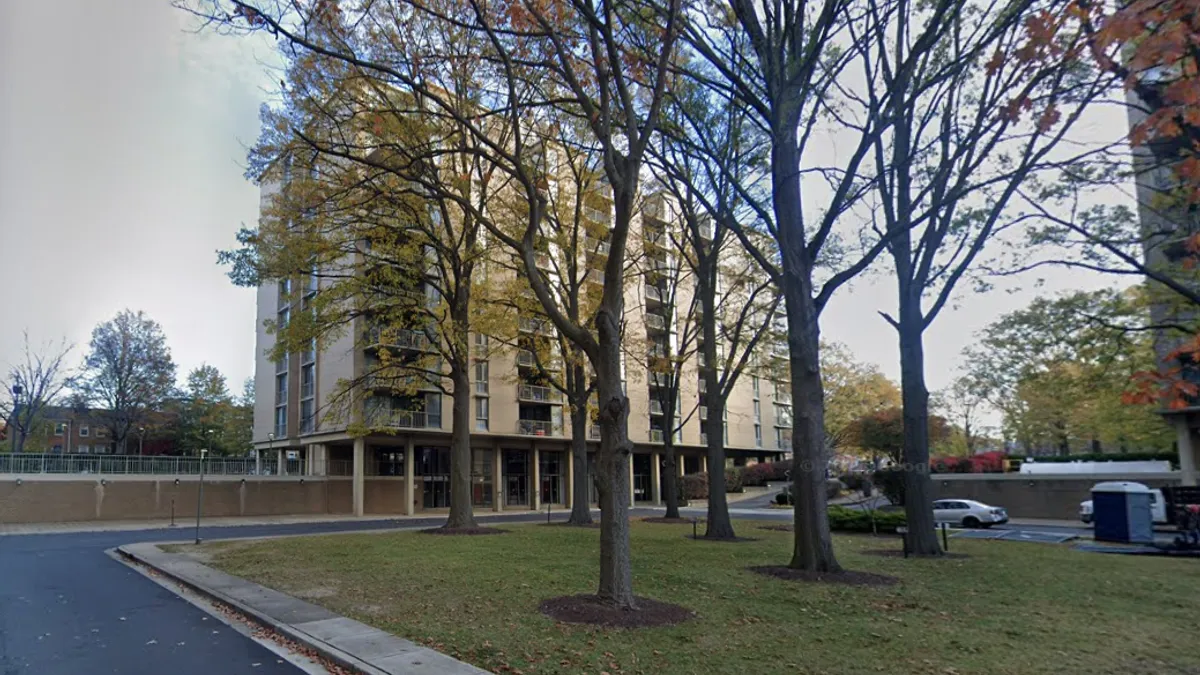As antitrust litigation against RealPage and apartment operators that use its software moves forward in a Nashville, Tennessee, federal court, a couple of multifamily firms have decided to settle.
In a February 2 court filing for the case, in which plaintiffs allege apartment operators shared competitively sensitive information using RealPage’s revenue management software, the plaintiff's lawyers told the court they reached a settlement agreement with Dallas-based Pinnacle Property Management Services, owned by real estate services firm Cushman & Wakefield, and were working on finalizing the agreement.
On February 5, attorneys for the renters and Denver-based Apartment Income REIT, more commonly known as AIR, reached a settlement to resolve all plaintiff claims against the company, according to a court filing. Reuters first reported the story.
In the filing, AIR and the plaintiffs requested a stay of deadlines in the case while they finalized the long-form settlement agreement, which they said will take several months to complete. Terms of the settlement were not disclosed.
In a statement released to Multifamily Dive, AIR denied all liability and said it was disappointed that the plaintiffs included the company as a defendant. Its contract with RealPage was different from those with companies and prohibited the alleged information-sharing at issue in the litigation, according to the firm.
“AIR’s pricing decisions were, and continue to be, made by AIR teammates using internal information together with publicly available market data,” the AIR statement said. “Despite the baselessness of the claims, AIR is pleased to exit the litigation early in a favorable manner.”
Ongoing litigation
AIR and Cushman, which did not respond to a request for comment, were among the defendants named in a lawsuit consolidated from more than 30 late 2022 and early 2023 cases alleging antitrust violations by RealPage and several owners and operators of multifamily housing utilizing the company’s revenue management systems. Property managers have been accused of sharing “competitively sensitive information with one another” by using RealPage as a conduit.
In December, Waverly D. Crenshaw Jr., chief U.S. District Court judge for the Middle District of Tennessee, rejected RealPage’s request to dismiss the suit, which had been consolidated in his court. He ruled the tenants showed enough cause for RealPage to confront the claims in court. However, the court did grant a motion to dismiss a similar student housing antitrust suit.
In the decision rejecting RealPage’s request, Crenshaw was skeptical about multifamily operators’ motivation for sharing information with RealPage.
Crenshaw wrote that plaintiffs’ most persuasive evidence of an agreement between RealPage and the property management companies was that the apartment operators handed over their “proprietary commercial data” to the Richardson, Texas-based property management software company. When they did this, they knew that RealPage would require the same action from their competitors, and it would then use that data to suggest rental prices.
“It would clearly not be in any individual defendant’s economic self-interest to contribute its data to RealPage without knowing that it would benefit from its horizontal competitors doing the same,” Crenshaw said in the decision to allow the multifamily suit to continue.
Political action
Lawmakers and regulators are also taking a hard look at pricing in the apartment industry. The Department of Justice has launched an investigation into RealPage’s pricing algorithm.
Senators Ron Wyden, D-Ore., and Peter Welch, D-Vt., introduced a bill last week meant to prevent the use of algorithmic systems to raise the price of rental housing units. If passed, the Preventing the Algorithmic Facilitation of Rental Housing Cartels Act of 2024 would make it unlawful for rental companies to use services that coordinate rental housing prices and unit supply information. It would also prohibit price coordination between two or more owners.
“Setting prices with an algorithm is no different from doing it over cigars and whiskey in a private club,” Wyden said in the release. “Although it's my view that these cartels are already violating existing antitrust laws, I want the law to be painfully clear that algorithmic price fixing of rents is a crime.”
Click here to sign up to receive multifamily and apartment news like this article in your inbox every weekday.


















